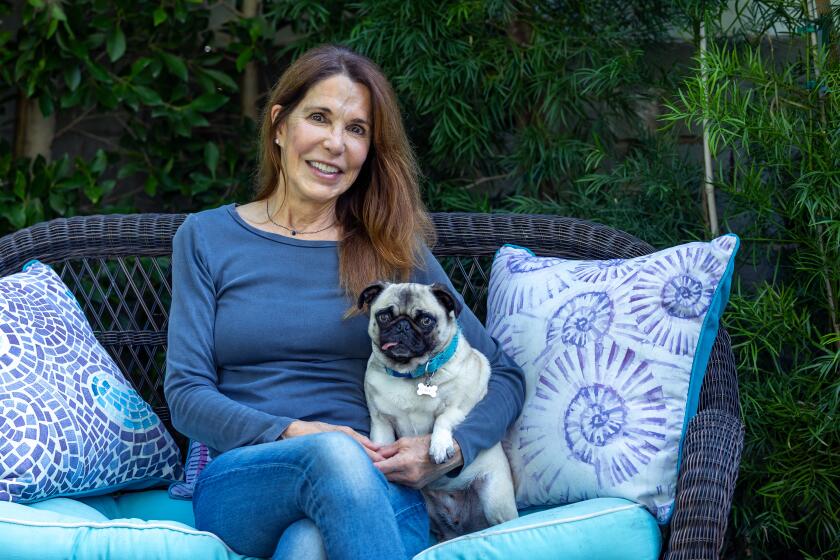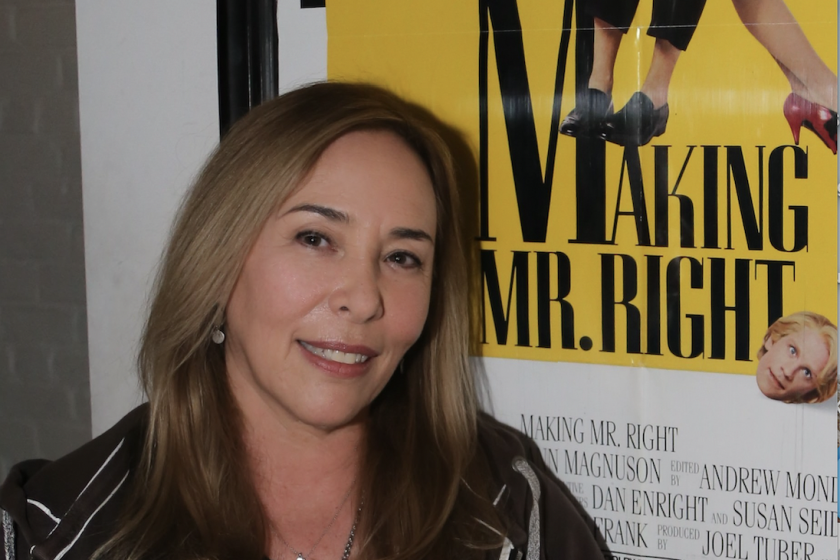Moon Unit Zappa on the ‘emotional trauma’ of her childhood: ‘Is genius worth the collateral damage?’

- Share via
On the Shelf
Earth to Moon
By Moon Unit Zappa
Dey Street Books: 368 pages, $30
If you buy books linked on our site, The Times may earn a commission from Bookshop.org, whose fees support independent bookstores.
Moon Unit Zappa remembers the moment she became the voice of a generation.
It was a school night in 1982 when musician Frank Zappa jostled his 13-year-old daughter awake. Frank needed her in the home studio, stat. It was the first time Moon had been summoned to her father’s sanctuary, the place where he essentially lived and worked when he wasn’t touring. As she tells it in her new memoir, “Earth to Moon,” out Tuesday, her dad said the five magic words: “We’re gonna record a song.”
In ‘Earth to Moon,’ the ‘Valley Girl’ singer and daughter of music legend Frank Zappa mixes Hollywood tales with scenes from an often difficult and chaotic childhood.
Groggy, “with unbrushed teeth,” Moon stepped into the soundproof vocal booth. Headphones were proffered, mics were adjusted. A shiver of excitement ran through her. Frank had obviously read the letter Moon had slipped under the studio door a few days prior, in which she had asked for a chance to “do my ‘Encino accent’ or ‘surfer dood talk’” on his new record — written correspondence being the only way Moon could think to get her father’s attention.
Now it was all happening.
With the directive to “talk and improvise in that funny voice,” Moon slipped into character, while Frank asked her to “try to work in ‘gag me with a spoon’ and ‘tubular.’” And it was over in a flash. Frank, clearly pleased, gave Moon a hug and sent her back to bed.
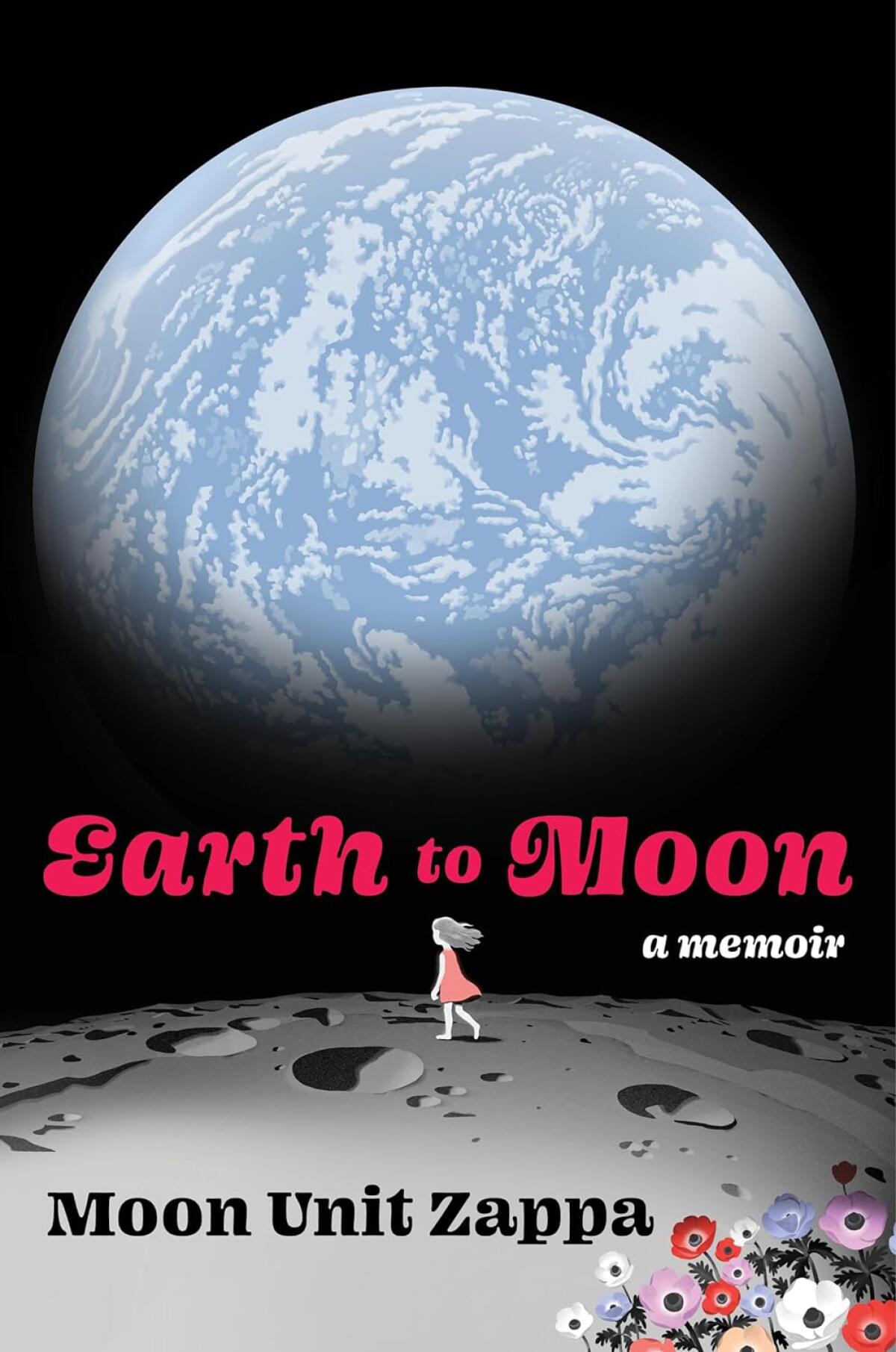
That recording became 1982’s “Valley Girl” — a left-field hit. More than four decades later, Moon’s “Valleyspeak” remains inextricably linked with ’80s SoCal youth culture. So why was it the one event in her life that she didn’t want to write about in her memoir? “That was a painful time,” says Moon. “It was the section that I had to wait until the end to finally write.”
What should have been a triumph for Moon instead became a source of consternation and conflicted feelings — familiar emotional territory for the child of two powerful and erratic narcissists who had little patience for child-rearing. The triumph of “Valley Girl,” Frank Zappa’s only Top 40 hit, was Frank’s alone.
Patti Davis has spent a lifetime chronicling her life with parents Ronald and Nancy Reagan. In a new book, ‘Dear Mom and Dad,’ she reckons with them as people, not parents.
Thus, Moon writes that she had to “hold the paradox of being told at home by the nearest and dearest to my heart that my contribution means nothing while the world sees me as clever and funny and talented.” This took her years to unpack, especially when she discovered that her “Valley Girl” royalties had been withheld by her parents.
Fraught negotiations over money, feelings and time consumed much of Moon’s young life. Her father, a brilliant musical polymath and beloved guitar hero, was a workaholic and thus a fleeting presence. Her mother, Gail, in contrast, was all too present — a demanding and frequently bullying parent. Living with her parents and three younger siblings, Ahmet, Dweezil and Diva, in a sprawling Laurel Canyon house that became a locus of work and play for three decades, Moon struggled to find her own safe harbor away from the high-intensity chaos of her domestic life.
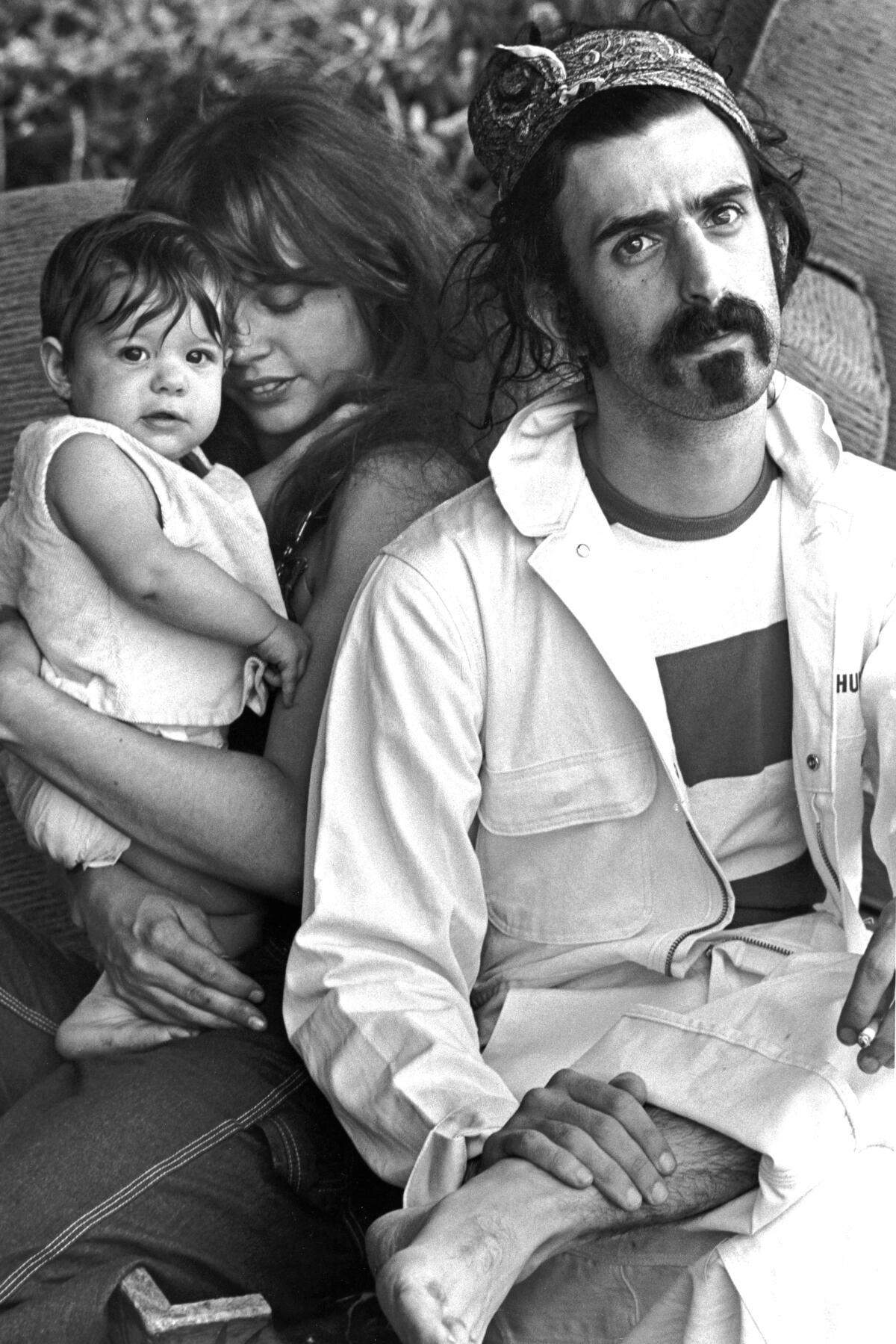
Suffice it to say, it didn’t work out that way. The vacuum filled by Gail Zappa in the absence of her perpetually touring husband was more like a raging vortex. “In some ways, I never felt it was my story to tell, and I encouraged Gail to write it,” says Zappa. “But when she died, I had to excavate just who the f— were these people.” Moon’s memoir is a self-portrait of an insecure and often confused child, worshipful of the absent father and thirsty for maternal affection. “What do you do when your mother is your first bully?” she says. “When you come from that kind of emotional trauma, the only thing you can think about is escaping.”
The perennially under-construction compound, with its “oleander … and old milk cartons … R. Crumb comics, empty tea and coffee mugs, and ashtrays,” was often inhabited, Moon writes, by naked strangers “cavorting or making candles.” “It was not unlike the feeling of being a kid who’s allowed to ride in the car while it travels through a car wash,” says Zappa. She’s eating a late lunch at Granville restaurant in North Hollywood, wearing a crystal necklace from her home in Taos, N.M. “Safe in the bubble, I watched all the mechanics of my surroundings with wonder. But there was too much nakedness and noise!” she adds.
Susan Seidelman’s new memoir, ‘Desperately Seeking Something,’ traces the arc of American film over the last 45 years as refracted through her singular career.
Gail fed her children’s developing minds with notions of predestination, aliens and the occult. She also read bedtime stories to them, and shared her bed when Frank was gone, but this parental kindness was usually mitigated by her vicious streak. According to Moon, her mother didn’t have the parenting tools to raise a family without creating turbulence. “Gail was very dependent on my father in many ways,” says Zappa. “But he was away so often that, as an adult, I weirdly have more empathy for her now. If you don’t do any work on yourself, you are going to be miserable.”
The organizing principle for Gail was to give Frank the space to do his work; her job was to tamp down domestic disturbances however she saw fit. “Something I have often grappled with, which became the impetus for the book, was this idea of, is genius worth the collateral damage it can do to a family?” says Zappa. “It’s the Pharaoh Syndrome. You are working for the top of the pyramid and it will eventually come back to you.”
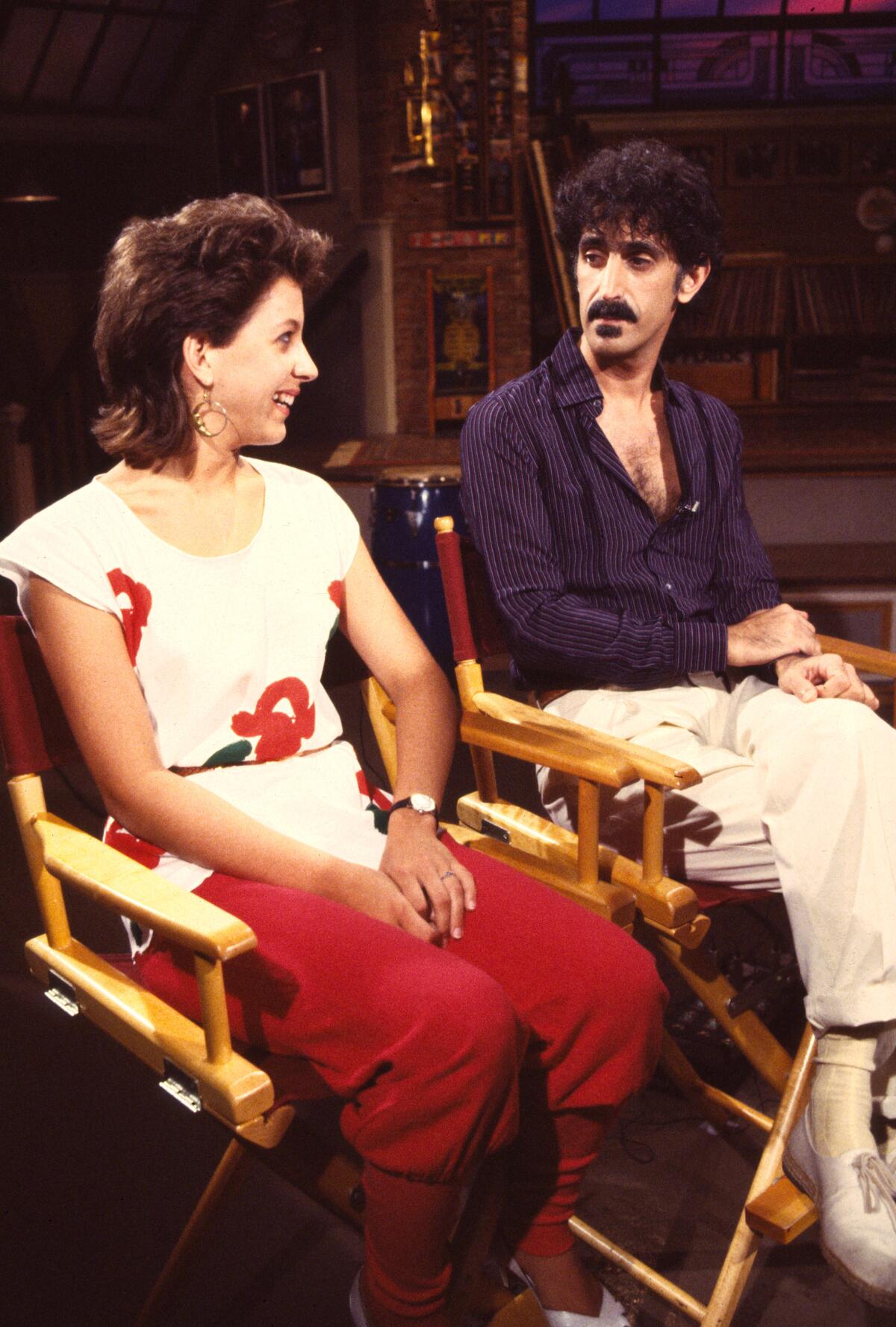
An exit plan was elusive. For Zappa, the pull of the family was strong, and often clashed with the impulse to create a life apart from it. In her memoir, Zappa writes about trying to leverage “Valley Girl’s” success with a fitful acting career that, in retrospect, kept her away from higher education or pursuing a mainstream “civilian” career. “I was living in an occluded hallucination,” she says. “It didn’t occur to me to go outside of show business.”
Gail died of lung cancer in 2015, 21 years after her husband’s death. Despite decades of subterfuge and concealment from Gail regarding the state of the family’s finances, Zappa had every expectation that the four children would receive an equitable share of the estate and run the business as her mother had. Instead, Gail died deeply in debt. When the dust cleared, the house and most of the assets were transferred to Diva and Ahmet. An ugly legal battle ensued among the siblings, and an emotional fissure opened that has yet to be mended.
Inside a home recording studio known as the Utility Muffin Research Kitchen, where the late Frank Zappa composed and recorded some of his most adventurous works, his youngest son, Ahmet, reflects on his father’s legacy.
“It’s inconceivable to me that Gail would choose sides like she did, the idea of leaving a mess behind, especially when there was time to straighten it all out before she died,” says Moon. “She always misinterpreted it as her kids looking for some pot of gold that never existed. Gail felt I was ushering her out the door, but she stole my ability to grieve for her.”
In Taos, Zappa has found a measure of solace in the stark beauty of its mesas and snow-capped mountains. She leads meditation workshops and has started her own line of teas. Although she remains in awe of her father’s talent (the book is dedicated to him), she is still sorting out her feelings in regard to her parents. “I suppose my story could be a cautionary tale about growing up in the shadow of a giant,” says Zappa. “But it’s really about overcoming something really difficult and finding peace.”
Moon Unit Zappa will be in conversation with author Ariel Leve at Beverly Hills Public Library on Aug. 22.
More to Read
Sign up for our Book Club newsletter
Get the latest news, events and more from the Los Angeles Times Book Club, and help us get L.A. reading and talking.
You may occasionally receive promotional content from the Los Angeles Times.

